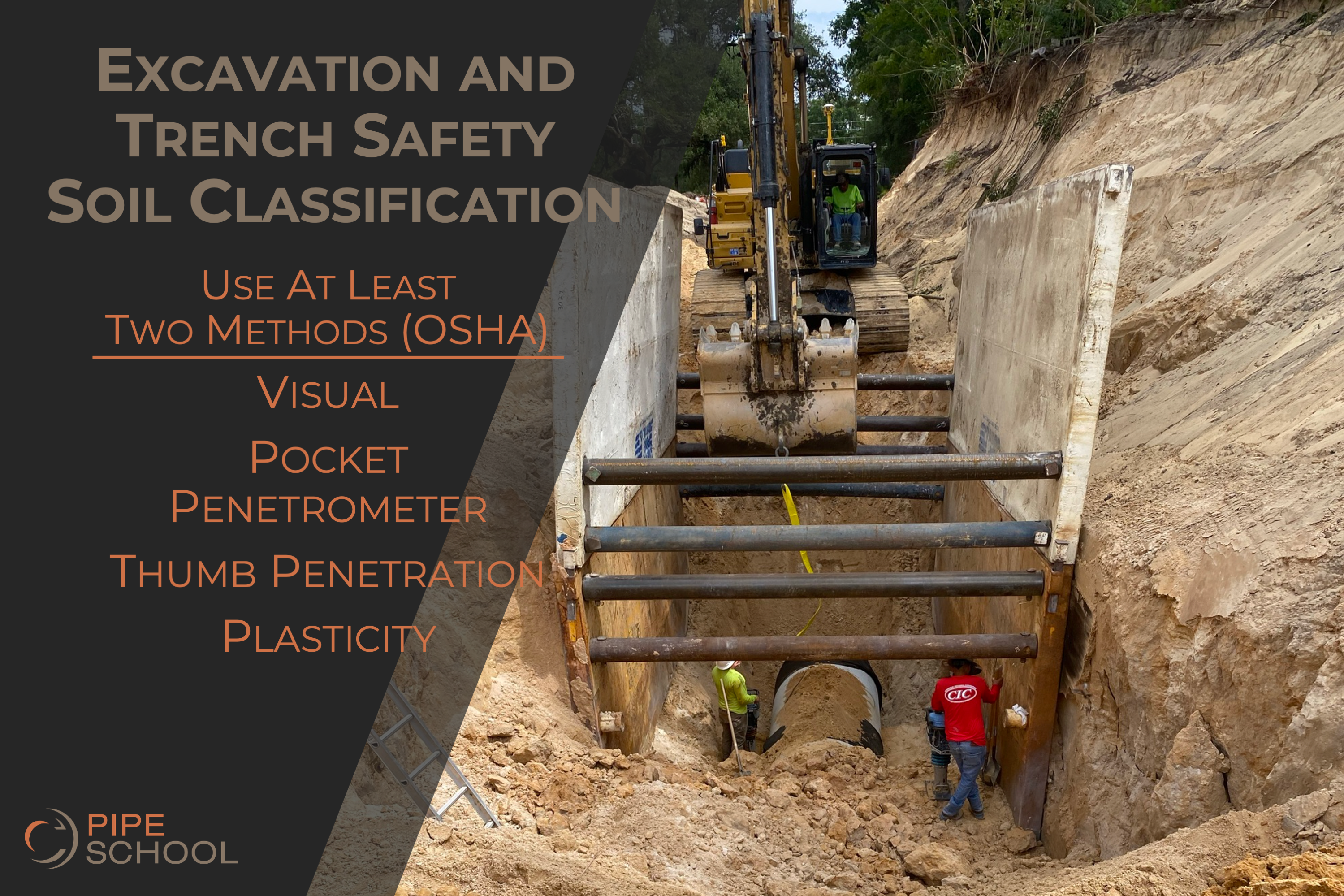Excavation and Trench Safety | Soil Classification
Presenter: Melitza Avila & David Matocha
Organization: Forterra Pipe & Precast
Description: OSHA requires that a competent person determine the type of soil in the trench as Stable Rock, Type A Soil, Type B soil, or Type C soil using at least two methods:
- Visual
- Thumb Penetration
- Pocket Penetrometer
- Plasticity
Visual Method
Inspect a full trench inspection daily or when conditions change to identify any hazards
Visual Inspection to determine if the soil is cohesive or granual
Cohesive soil will contain clay
Granular soils require greater protective measures to prevent cave-ins
require a competent person to classify soil and rock deposits as:
Stable rock;
Type A soil;
Type B soil; or
Type C soil.
Pocket Penetrometer Method
Penetrometers are direct-reading, spring-operated instruments used to determine the unconfined compressive strength of saturated cohesive soils. Once pushed into the soil, an indicator sleeve displays the reading.
The instrument is calibrated in either tons per square foot (tsf) or kilograms per square centimeter (kPa).
Penetrometers have error rates in the range of ± 20-40%.
Thumb Penetration Method
The thumb penetration procedure involves an attempt to press the thumb firmly into the soil in question
If the thumb makes an indentation in the soil only with great difficulty, the soil is probably Type A soil
If the thumb penetrates no further than the length of the thumb nail, it is probably Type B soil
if the thumb penetrates the full length of the thumb, it is Type C soil.
The thumb test is subjective and is therefore the least accurate of the three methods.
Plasticity Method
This test is conducted by molding a moist sample of the soil into a ball and attempting to roll it into a thin thread approximately 1/8 inch (3 mm) in diameter (thick) by 2 inches (50 mm) in length.
The soil sample is held by one end.
If the sample does not break or tear, the soil is considered cohesive.



